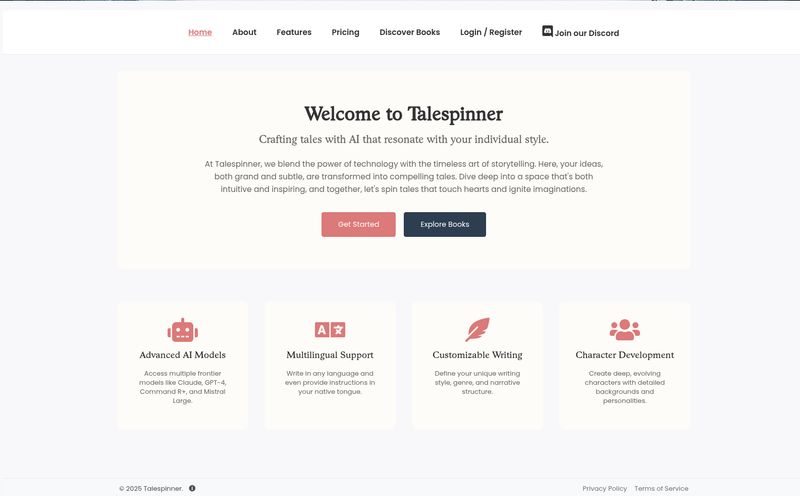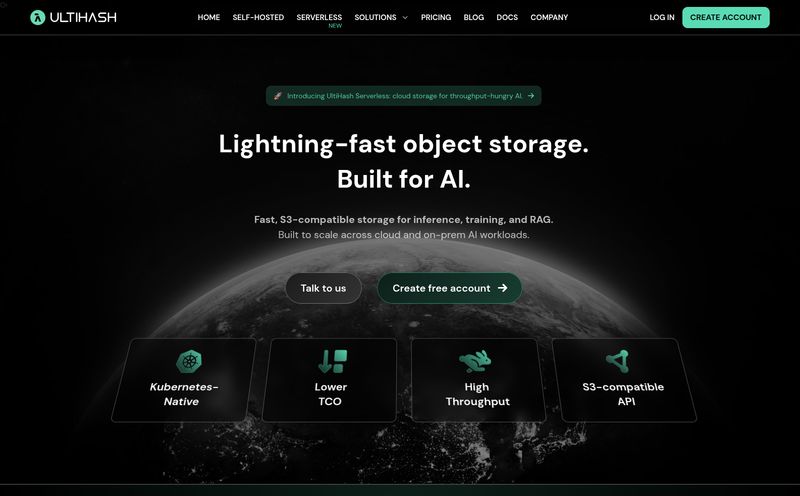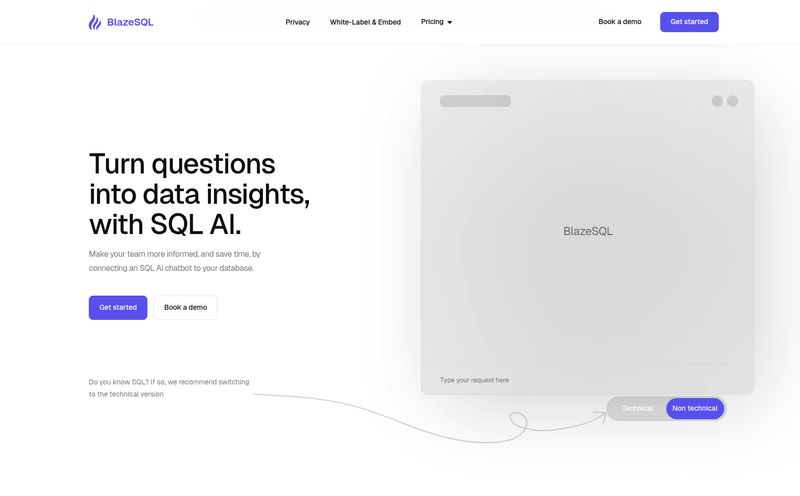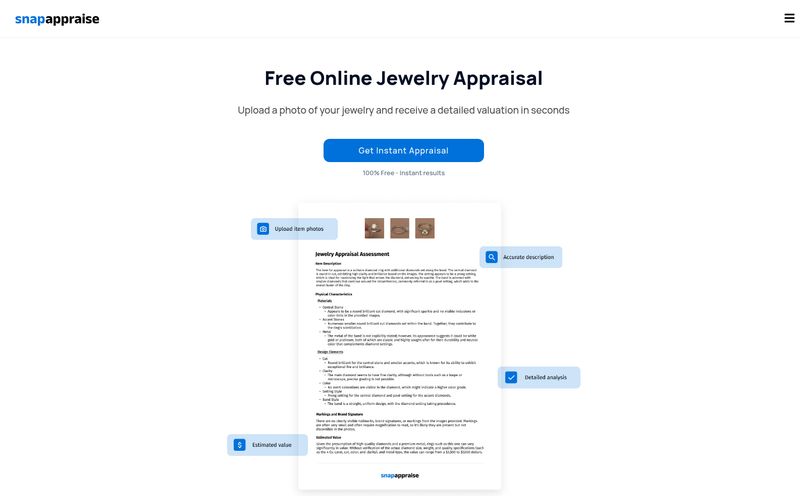How much of your day as a developer is spent... well, not coding? You're actually wrestling with Google, sifting through a dozen purple links you've already clicked, and trying to decipher a Stack Overflow answer from 2012 that’s almost what you need. It’s the ritual. The dance. And frankly, it can be a colossal waste of time.
I’ve been in the SEO and dev world for years, and I’ve seen tools come and go. Most promise to change everything, but few actually stick. When I first heard about Phind, an AI search engine built specifically for developers, my professional skepticism kicked in. Another ChatGPT wrapper? A gimmick? But I have to admit, after spending some real time with it, my curiosity has turned into genuine interest. It’s not just about finding answers; it’s about how it thinks alongside you.
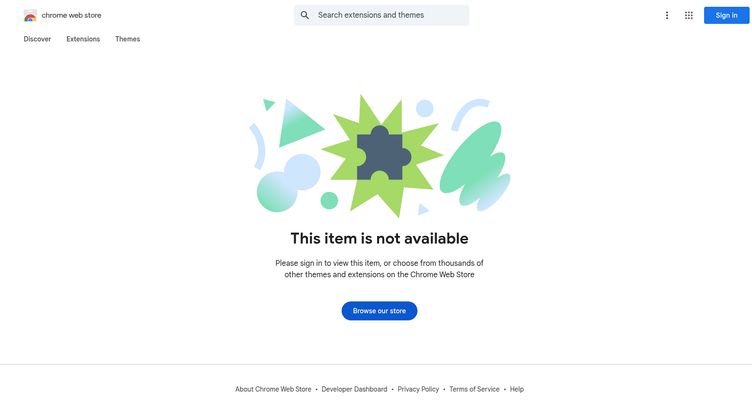
Visit Phind
So, What Exactly is Phind?
At its core, Phind calls itself an "AI search engine and pair programmer." That’s a pretty bold claim. It’s not designed to find you the best recipe for lasagna or the capital of Nebraska. Its entire world revolves around code. You don't just type keywords; you ask it questions in plain English (or whatever language you speak). Things like:
How do I handle file uploads in a Next.js 14 app router and store them in an S3 bucket? Show me the code for the API route.
Instead of giving you a list of links to blog posts and forum threads, Phind synthesizes information from across the web and gives you a direct, consolidated answer, often complete with code snippets. It's like having a senior develoepr on call who has read every single piece of documentation and every tutorial ever written. It’s a reasoning engine, not just a glorified index.
How Phind Changes the Developer Workflow
This is where things get interesting. It’s not just a faster Google; it represents a different way of working. It’s a subtle shift but a powerful one.
From Searching to Conversing
The biggest change is moving from keyword-based searching to natural language querying. You don't have to contort your brain to think like a search algorithm anymore (“nextjs 14 file upload s3 example”). You just ask. This feels more intuitive and lets you stay in your problem-solving flow state. Phind provides a clear, written explanation followed by code, and—this is the important part—it cites its sources. You can see the links it pulled from, so you can always go check the original context if something feels off. Trust but verify, right?
Your New AI Pair Programmer
The term "pair programmer" gets thrown around a lot. In this context, it means Phind can actively help you write, debug, and refactor code. You can paste in a function that’s throwing an error, and it can often spot the issue. It can explain complex concepts, suggest better ways to structure your code, or even generate boilerplate for you. It's like rubber duck debugging, except the duck actually talks back with useful advice. The results are quick and surprisingly relevant most of the time.
Integration Where It Counts: Inside VS Code
This, for me, is the killer feature. Having to switch windows to a browser breaks your focus. It’s a small thing, but it adds up. Phind has a VS Code extension that brings its power right into your editor. You can highlight a block of code and ask Phind to explain it, find bugs, or optimize it without ever leaving your environment. I will say, the extension is labeled as being in its early stages (Alpha), so there might be some quirks. But the potential here is massive for productivity.
Interestingly, it seems they're focusing heavily on this IDE integration. I did some digging for a Chrome extension and came up empty, with the web store page showing "This item is not available." My guess is they've decided to go all-in on the web app and VS Code experience, which honestly makes a lot of sense.
A Look at Phind’s Nifty Features
Beyond the main search and pair programming, there are some smaller touches that show they really understand developers. You can customize your search to only include results from the last week, month, or year. This is a godsend for anyone working with fast-moving frameworks like JavaScript where an answer from two years ago is practically ancient history. It also supports "Bang Search Shortcuts," a nod to DuckDuckGo users, allowing you to quickly search other sites like Stack Overflow (!so) or Reddit (!r) directly from Phind's search bar if you want a second opinion.
Phind Pricing: How Much Does It Cost?
Ah, the all-important question. Everyone's a fan until the credit card comes out. The good news is, Phind has a very generous free tier. For many users, this will be more than enough. But if you're a power user or a professional who needs the best of the best, there are paid plans that offer more power.
| Plan | Key Features | Best For |
|---|---|---|
| Free | 10 uses of the 'Expert' mode (GPT-4 powered), standard search, VS Code extension. | Hobbyists, students, and casual users. |
| Phind Plus | Higher limits on GPT-4 usage, access to the latest models, faster responses. | Professional developers who need reliable, top-tier answers. |
| Phind Pro | Even higher limits, priority access to models and features. | Heavy users, teams, and those who want the absolute best performance. |
Note: Pricing and limits can change, so always check their official site for the latest info.
My Unfiltered Opinion on Phind
Look, no tool is perfect. The GPT-4 usage limits on the free and lower-tier plans are a bit of a bummer, because that's where Phind truly shines. Sometimes the answers can be a little verbose or miss a subtle nuance of your question. It's not a magic wand that will write your entire application for you (and you wouldn't want it to be).
But here's my take: Phind is an exceptionally good tool that has earned a permanent spot in my workflow. For quickly scaffolding a new component, understanding a foreign codebase, or just getting a straight answer without the usual Google-fu, it's fantastic. I've found myself reaching for it more and more, often before I even think about Stack Overflow. It doesn't replace critical thinking, but it acts as an incredible accelerator. It’s a tool that respects my time, and in this industry, time is everything.
Is it a total replacement for traditional search? Not quite yet. There are times you want to read the discussion and see the human element in a forum thread. But for getting a direct, high-quality answer to a technical problem fast? Yeah, it’s pretty darn close to perfect.
Frequently Asked Questions About Phind
Is Phind better than ChatGPT for coding?
In my experience, yes. While ChatGPT is a general-purpose model, Phind is fine-tuned specifically for developer queries. It tends to provide more accurate, up-to-date code examples and cites its sources, which is a huge advantage for verification.
Can Phind completely replace Stack Overflow?
For getting quick, synthesized answers, it often can. However, Stack Overflow still holds value for its community aspect—the discussions, debates, and multiple human perspectives on a complex problem. I see Phind as a first stop, and Stack Overflow as a follow-up for deeper, more nuanced issues.
Is Phind actually free?
Yes, Phind has a very usable free tier that includes access to its standard search model and a limited number of 'Expert' searches powered by GPT-4. For more intensive use, they offer paid plans like Phind Plus and Pro.
How does the VS Code integration work?
You install the Phind extension from the VS Code Marketplace. Once installed, you can open a Phind panel within your editor. You can then highlight code and ask questions about it, or just type in a general query without having to switch to a browser window. It's all self-contained in your IDE.
Are the answers from Phind always correct?
No AI is 100% infallible. While Phind's accuracy is impressive, you should always treat its output as a highly-educated suggestion. Review the code, understand what it's doing, and test it before implementing it in production. The fact that it provides sources is a great way to double-check its work.
The Final Verdict
The world of development is changing fast, and AI is at the center of that transformation. Tools like Phind aren't here to take our jobs; they're here to make us better at them. They handle the grunt work of searching and synthesizing so we can focus on the hard parts: architecture, logic, and building great things.
If you're a developer who values your time and focus, I'd say giving Phind a try is a no-brainer. Start with the free version. Integrate it into your workflow for a week. See if it doesn't just save you a few Google searches, but actually makes you a faster, more efficient coder. I bet it will.
